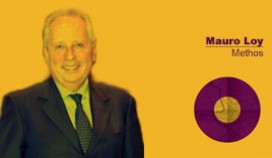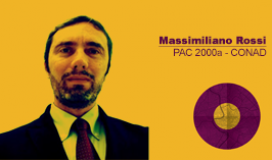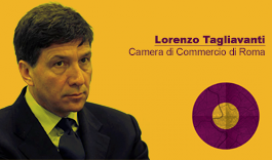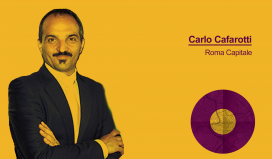14 Novembre 2014
Big&Small 7.0_Instructions for use_Part/2
Big&Small’s afternoon session was moderated by Valerio Valla, CEO of Studio Valla, who coordinated interventions of Anna Cinzia Bonfrisco, Senator of the Italian Republic, Francesco Tufarelli, Councillor of the Presidency of the Council of Ministers Delegate for Italian Semester of European Presidency, Gian Carlo Bertoni, Head Internazionalisation of Studio Valla, Gian Carlo Innocenzi Botti President of Invitalia and Didier Herbert, Director at the Directorate General Industry of the European Commission. In conclusion an exceptional speaker attended the panel, the Deputy Chairman of the European Parliament Antonio Tajani.
The main topics argued during the session were the credit, grant awards and the Structural Funds, furthermore wide space has been dedicated to the internationalization of enterprises.
Valerio Valla, CEO of Studio Valla, opened the afteroon panel providing news on EU funds allocated to Italy in the next seven years, "the European Union must be seen as an opportunity for our country, not as a constraint to growth and developing businesses. To make the most of the resources of EU is required that companies are put in a position to know all the tools and instruments that the Commission provides. "Valerio Valla then explained that the total expenditure certified to the EU amounted to 26.725 million euro on May 31 2014, equivalent to 56.0% of the available budget: therefore remain to be spent 21.022 billion euro by December 31, 2015, representing the significant delay of Italy compared to the other Member States.
Only two countries have managed to do worse than us - said the CEO of Studio Valla - Croatia with 22% (which discounts the EU admission only in 2013) and Romania, with 37%. Consider that for the 2014-2020 period, Italy will boast resources available amounted to 32.268 billion, of which 22.334 dedicated to the less developed regions.
Then the word passed to the Senator of the Republic Anna Cinzia Bonfrisco, who began by explaining the need to create conditions to foster growth through structural funds and the modernization of enterprises.
The senator has acknowledged that "there is a significant delay in the resources commitment that Europe provides, and this is also due to a lack of competence on Structural Funds and Direct Aid.
For instance, the Deposit and loans fund has had a main role in the last years to allow strategic works for the country, today among it’s new missions there is also the internationalization of the business system.
Afterwards the Invitalia President, Gian Carlo Innocenzi Botti, showed how difficult and complex is support and enable all internazionalization processes and phases: "All are convinced that we can internationalize their company but by what means? You have to have an excellent product and choose qualified staff who can accompany the enterprise.” Invitalia promotes the internationalization and attraction of foreign investments.
Also Gian Carlo Bertoni, Head of Internationalization of Studio Valla, stressed the concept that the opportunity for growth is no longer focused on the domestic market, but it is essential to go farther and forces companies to invest more. The credit is essential to support abroad investments, but companies must calibrate and better design their processes of internationalization.
THE CONCLUSIONS OF DIDIER HERBERT AND ANTONIO TAJANI
In conclusion Valerio Valla introduced two exceptional speakers: Didier Herbert and MEP Antonio Tajani. Didier Herbert, Head of Unit Enterprise Competitiveness, Industry and Growth policies of DG Enterprise of the European Commission, explained is necessary to ensure better access to financial resources, raw materials, energy and human resources, simplify the regulatory framework and access to domestic and foreign markets. According to Herbert, "90% of future growth comes from foreign markets, and 30 million jobs are tied to exports. That's why internationalization is one of the pillars of EU policy also considering that among 23 million of SME in Europe only one on eight is active in foreign markets. There are different reasons: the identity of the companies, which are smaller and require information about the processes of internationalization and contacts with foreign markets, the bureaucratic and administrative procedures in domestic markets, and obstacles compounds from standard rates and production quotas, which are difficult to deal with. The European Commission, in order to overcome these obstacoles, is promoting several programs and tools, particularly for SMEs, in addition to negotiating trade agreements with countries including the United States of America, India and Japan. Furthermore thanks to COSME program, which supports the competitiveness of enterprises and SME, the Enterprise Europe Network (EEN) which boasts 600 correspondents in 54 countries and allows assist companies in finding information and partners, the Horizon 2020 program which supports international cooperation in research and innovation and the Missions for growth, with the purpose of connecting to invest and entrepreneurs from all over Europe with other organizations, the Commission supports the expansion of European business in foreign markets.
Finally Antonio Tajani, Deputy Chairman of the European Parliament has outlined an overview of the issue: "The challenge is to take the path of growth with an investment plan of the Commission which should see the light by Christmas. We're talking about a $ 300 billion plan that will finance the industrial policy. The Vice President stressed the role that events of confrontation as Big & small is, are fundamental for businesses confrontation.
Mr Tajani concluded his speech by confirming that contribution forms for the development existed, but need a strong intervention to revive the economy by reducing the tax burden on businesses, supporting consumption and industrial production. Only in this way will allow Italy to return to growth.









